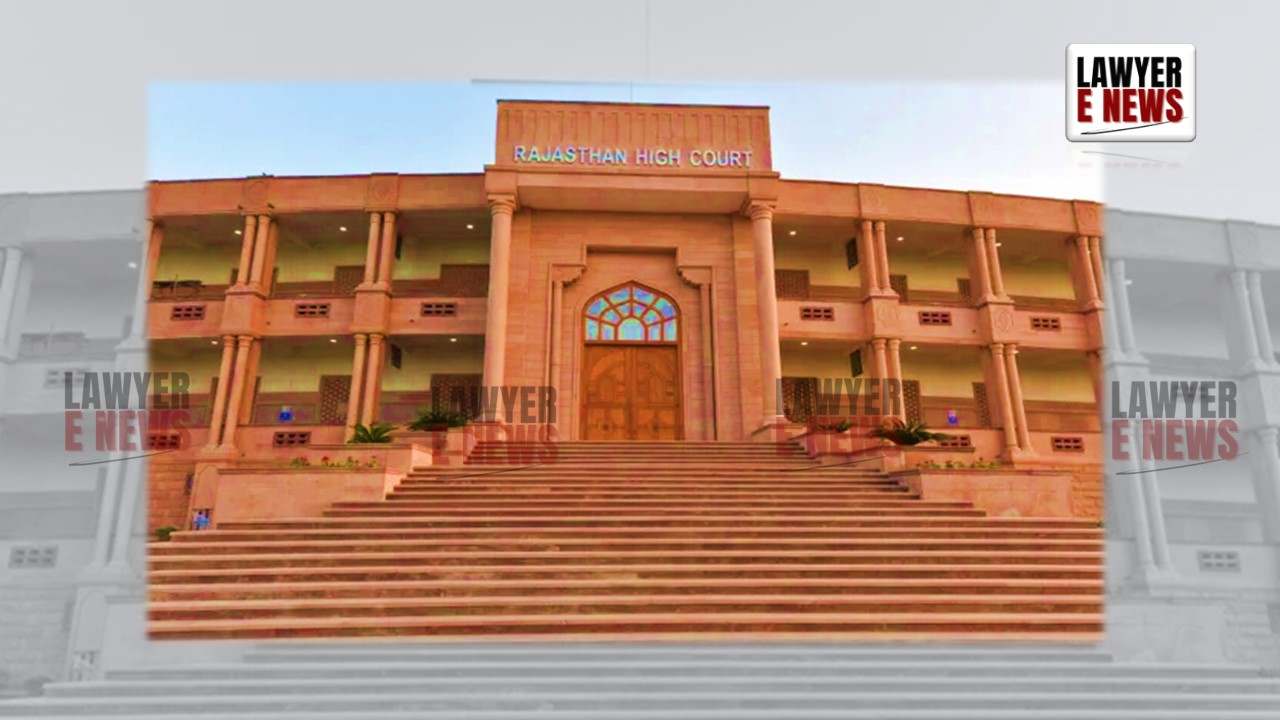-
by Admin
15 February 2026 2:36 AM



Rule of Merit Must Prevail Over Procedural Hurdles, Rajasthan High Court (Jaipur Bench), in a significant judgment, directed the reconsideration of NEET UG 2024 Stray Vacancy Round allotments for MBBS/BDS courses. The Court held that procedural technicalities cannot override the fundamental rights of meritorious candidates, especially when delays in document submission were caused by external factors such as public holidays and COVID-19-related academic policies.
The judgment was delivered by Justice Sameer Jain in the case of Kanchan Kumawat vs. Union of India & Ors., with similar petitions being adjudicated under the same principles. The Court canceled the seat allotments of less-meritorious candidates and ordered the respondents to reallocate seats strictly based on merit.
"The rule of merit is the cornerstone of the admission process and cannot be compromised by procedural formalities. Any action that deprives a meritorious candidate of their rightful seat violates Articles 14 and 21 of the Constitution." [Paras 14.5-14.6]
The petitioners, including Kanchan Kumawat, had scored higher ranks in the NEET UG 2024 exam but were excluded from the Stray Vacancy Round seat allotment process for MBBS/BDS courses. Their exclusion was due to the non-submission of Class XI mark-sheets indicating Biology as a subject. The petitioners argued that they had submitted Class XII mark-sheets, which adequately reflected Biology as a subject studied, but were unable to obtain the Class XI certificates during the short timeline provided amidst public holidays.
The Stray Vacancy Round was conducted between October 26, 2024, and November 3, 2024, coinciding with the Deepawali holidays, during which government offices and schools were closed.
Petitioners belonged to the academic year impacted by COVID-19 pandemic policies, during which students were promoted without detailed subject certificates.
Despite promptly submitting an affidavit and a certificate from their school principal after the holidays, their candidatures were rejected.
Less-meritorious candidates (respondents Nos. 5 and 6) were allotted seats instead, prompting the petitioners to approach the Court.
Can procedural requirements, such as submission of Class XI mark-sheets, override the fundamental right to merit-based admissions?
Do the circumstances, such as public holidays and pandemic-related policies, justify judicial intervention to protect the rights of meritorious candidates?
The Court noted that the Class XII mark-sheets submitted by the petitioners clearly indicated Biology as a subject studied. It found the requirement of Class XI mark-sheets to be arbitrary and unnecessary, especially in light of the pandemic-related promotion policies, which did not include subject-specific details for Class XI.
Court’s Observation: "The Senior Secondary mark-sheets submitted by the petitioners are sufficient proof of eligibility. Insisting on Class XI mark-sheets when the same information is reflected in Class XII mark-sheets is an unjust technicality." [Para 14.2]
The Court acknowledged that during the COVID-19 pandemic, students were promoted to higher classes without detailed subject certifications. This limitation was recognized as an outcome of a government-mandated policy, and no fault could be attributed to the students for their inability to submit the Class XI certificates.
Court’s Observation: "The pandemic-related promotion policies did not require subject-specific details in Class XI certificates. The rejection of the petitioners' candidatures on this ground is arbitrary and violative of their fundamental rights." [Para 13.7]
The timeline for document verification (October 28, 2024, from 9 AM to 12 Noon) coincided with public and office holidays for Deepawali, making it practically impossible for candidates to procure certificates from school authorities. The Court criticized the respondents for scheduling the process during such a period without providing adequate time or notice.
Court’s Observation: "The respondents scheduled the document verification process in haste, amidst public holidays, leaving candidates with no realistic opportunity to comply. Such actions are unjustified and warrant judicial intervention." [Para 14.1]
The Court reiterated the absolute rule of merit in admissions to professional courses, citing the Supreme Court's judgment in Asha vs. Pt. B.D. Sharma University of Health Sciences (2012). It emphasized that denying admission to higher-merit candidates while granting seats to lower-merit candidates violated the principles of equality (Article 14) and right to education (Article 21).
Court’s Observation: "Merit is the fundamental criterion for admission, and any action that disrupts this rule undermines the constitutional mandate of equality and fairness." [Para 14.5]
The Court relied on judgments such as Dolly Chhanda vs. Chairman JEE (2005) and S. Krishna Sradha vs. State of Andhra Pradesh (2020), which allow relaxation of procedural requirements under exceptional circumstances to protect the rights of meritorious candidates.
"Where denial of admission is due to procedural lapses or arbitrary actions by authorities, courts must intervene to uphold merit and fairness. This is especially true in the rarest of rare cases."
[Para 14.8]
The Court allowed the petitions, directing the respondents to reconsider the petitioners' candidatures strictly based on merit.
Allotments Canceled for Less-Meritorious Candidates: The seat allotments of respondents Nos. 5 and 6 (lower in merit) were canceled to accommodate the petitioners.
Directions to Respondents: The respondents were ordered to reallocate seats without delay, as the academic session had already commenced.
The judgment was made applicable mutatis mutandis to all similar cases.
The Rajasthan High Court’s judgment underscores the primacy of merit in professional admissions and sends a strong message against arbitrary procedural hurdles that undermine equality and fairness. By recognizing the challenges posed by public holidays and pandemic-related policies, the Court ensured justice for meritorious candidates whose rights were at risk of being denied.
Date of Judgment: November 14, 2024
